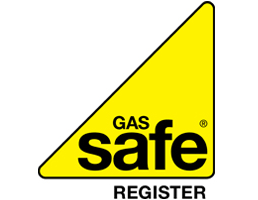What is Greywater Recycling?
We all want to do our part when it comes to saving the planet. One of the best things we can do when it comes to protecting the earth is to make sure that our homes are as environmentally friendly as possible. This includes taking responsibility for greywater recycling.
Not only is an environmentally friendly home good for the planet, but it can also be good for your wallet.
The plumbing pros at UKOOA have put together this guide on greywater recycling to help you understand what it is, how it works and what steps you can take to make your home more environmentally friendly.
What is the difference between whitewater, greywater, and blackwater?
If you’re familiar with the term ‘greywater,’ you may have also heard of ‘blackwater’ and ‘whitewater’. But what’s the difference between the three?
What is whitewater?
Whitewater is the water that flows through your kitchen taps—it’s been treated to ensure it contains no nasties and is clean and safe to drink.
What is blackwater?
Blackwater is wastewater that contains pathogens or harmful bacteria. Also known as sewage water, blackwater comes from toilets and often contains faecal matter and/or urine.
Blackwater accounts for about one-third of the water used in an average household. This kind of water needs to be treated by professionals using specialised chemicals, so you won’t be able to recycle it yourself.
What is greywater?
Greywater is somewhere in between blackwater and whitewater. While it isn’t as contaminated as blackwater, and won’t contain particles of pathogen-filled human or animal waste, it isn’t as clean as whitewater and isn’t suitable for drinking.
Generally making up between 50% to 80% of household water waste, greywater is produced from dishwashers, washing machines, mop buckets, baths, and showers. Greywater contains substances such as soap, skin cells, or food particles.
Even though greywater isn’t clean enough for drinking or cooking, it is suitable for recycling. Recycling greywater can reduce a household’s water usage by around 40%. So if you have a water metre installed in your home, greywater recycling can be a great way to reduce those monthly water bills. Many greywater recycling services exist to help do just this.
How does greywater recycling work?
Do you ever use old bath water to water your plants? Or empty your mop bucket over a thirsty lawn? Then congratulations—you are already carrying out greywater recycling!
By installing a greywater recycling system in your home, however, you can ensure that most (if not all) of your greywater can be reused, without having to faff around collecting the water in buckets and bowls yourself.
How a greywater recycling system works
A professional plumber can install a greywater recycling system in your home. This system drains greywater from showers, baths, washbasins, washing machines, and dishwashers. Rather than flushing down the drain, this wastewater will instead be redirected into the installed greywater recycling system. The greywater will then be filtered to remove larger waste particles before being pumped back into a storage tank.
The greywater recycling storage tank is connected to the toilet systems and outdoor taps, meaning that every time you flush your toilets or use the garden hose, you’ll be using recycled water.
Greywater recycling is generally more reliable than other recycling systems, like relying on rainwater. This is because every time you or a member of your household does something as simple as wash their hands or use the washing machine, they’ll be filling up the storage tank—meaning there’s always a supply of recycled greywater ready for use.
Rainwater, by comparison, is not quite as dependable due to inconsistent weather and certain times of the year producing more rainwater. So, if you’re relying on using recycled rainwater in your home, this can become tricky during the summer months.
Why choose a greywater recycling system
If the concept of greywater recycling is new to you, then you may be feeling a little overwhelmed with all this new information. To help you come to a decision, here are the main benefits of greywater recycling:
- Greywater recycling systems reduce household water usage, making it an environmentally friendly addition to the home.
- Using recycled greywater can help you reduce your water bills.
- A greywater system is a much easier way to reuse water than lugging around heavy buckets!
- Greywater systems don’t rely on rainwater, making them a dependable water source all year-round.
If you’d like to speak to a member of our plumbing team about having a greywater system installed, you can either fill out our online form, call us on 0203 519 6605, or email us at info@ukooa.co.uk. We’d love to hear from you!
Take a look at our more general advice on how to reduce your water bills to help you decrease your spending in the home.


